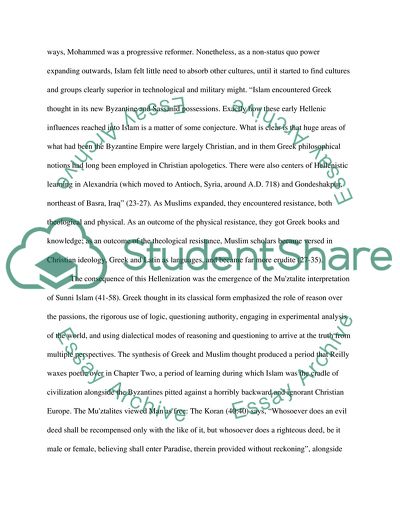Cite this document
(Closing of the Muslim Mind by Robert Reilly Book Report/Review - 4, n.d.)
Closing of the Muslim Mind by Robert Reilly Book Report/Review - 4. Retrieved from https://studentshare.org/religion-and-theology/1748842-the-closing-of-the-muslim-mind
Closing of the Muslim Mind by Robert Reilly Book Report/Review - 4. Retrieved from https://studentshare.org/religion-and-theology/1748842-the-closing-of-the-muslim-mind
(Closing of the Muslim Mind by Robert Reilly Book Report/Review - 4)
Closing of the Muslim Mind by Robert Reilly Book Report/Review - 4. https://studentshare.org/religion-and-theology/1748842-the-closing-of-the-muslim-mind.
Closing of the Muslim Mind by Robert Reilly Book Report/Review - 4. https://studentshare.org/religion-and-theology/1748842-the-closing-of-the-muslim-mind.
“Closing of the Muslim Mind by Robert Reilly Book Report/Review - 4”, n.d. https://studentshare.org/religion-and-theology/1748842-the-closing-of-the-muslim-mind.


